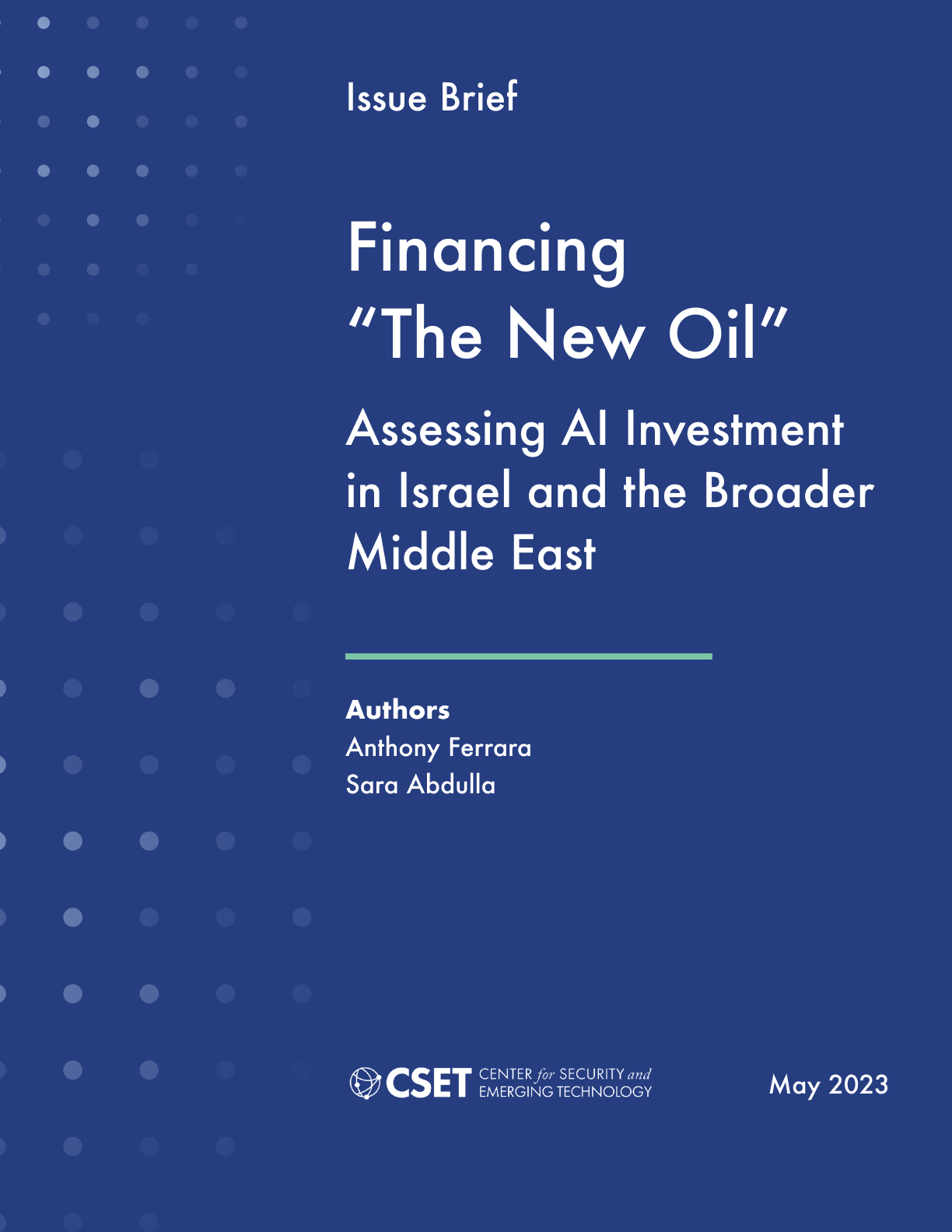Executive Summary
Aligned with worldwide research, development, commercialization, and advancements in artificial intelligence (AI), the pace of investment in Israel’s AI market has become an integral part of the country’s economy. From a U.S. national security perspective, investments from strategic competitors such as China into a market with heavy U.S. investments could put some of these emerging technologies at risk, as China’s technology strategy of acquiring intellectual capital through partnerships, technology transfer, and acquisitions of foreign companies remains active. This report uses investment data from Crunchbase from the years 2010 to 2021 to assess trends in AI markets in Israel and the broader Middle East. Though the potential risks linked to Chinese technology investments are very much still present in Israel, our analysis reveals a decreasing presence of Chinese investments in Israeli AI markets over the last few years.
The primary findings of this report include:
- Israel has by far the largest AI ecosystem in the Middle East as measured in AI companies and financial investments, and foreign investors play a critical role in Israel’s AI market growth.
- Investors from the United States are the most significant players in Israeli AI companies, present on 30 percent of analyzed transactions and comprising 61 percent of disclosed investment capital.
- Investments into Israel’s AI companies also came from United States’ allies including countries in the European Union and the United Kingdom. Foreign investments from these nations appear to be continuing their trajectory of incremental growth and show no indications of slowing.
- Chinese investors have played a limited role in funding Israel’s dynamic AI companies. Chinese AI-related investment activity within Israel is trailing far behind investments from the United States and its allies, in both the number of transactions and disclosed investment values, and has been trending downward since 2019.
- The top Chinese investments in Israeli AI tend to take place in companies that are attracting a large set of multinational investors, rather than a sole foreign investment entity.
- Of the top 10 Israeli companies that have attracted major Chinese investments, six focus on autonomous vehicles, synthetic vision, robotics, or edge computing, raising concerns about technology that could likely transfer well into national security or defense-related applications.
The United States and Israel have a robust history of economic, diplomatic, and strategic ties that have yielded successful partnerships in a variety of contexts. Both countries have agreed artificial intelligence should be a pillar of their future strategic partnership and have outlined some initial steps. Although our findings suggest that China is currently not a major investor in Israel’s AI ecosystem, concerns about technology transfer, intellectual property theft, and acquisitions remain top of mind, suggesting that future steps for strategic partnership in AI between the United States and Israel will need to address potential risks from China.
